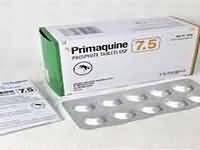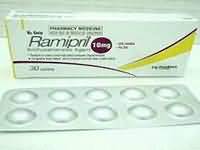primaquine phosphate

CLINICAL USE
Treatment of malaria ( Plasmodium vivax and Plasmodium ovale), in combination with chloroquineTreatment of Pneumocystis jiroveci pneumonia (PCP), in combination with clindamycinDOSE IN NORMAL RENAL FUNCTION
Malaria: 15–30 mg once daily for 14 days PCP: 30 mg once dailyPHARMACOKINETICS
DOSE IN RENAL IMPAIRMENT
GFR (mL/MIN)
DOSE IN PATIENTS UNDERGOING RENAL REPLACEMENT THERAPIES
IMPORTANT DRUG INTERACTIONS
Potentially hazardous interactions with other drugsADMINISTRATION
Reconstition
–Route
OralRate of Administration
–Comments
–OTHER INFORMATION
Primaquine base 7.5 mg is approximately equivalent to 13.2 mg primaquine phosphateMajor metabolite, 8-(3-carboxyl-1- methylpropylamino)-6-methoxyquinolone, possesses less antimalarial activity than the parent compound
See how to identify renal failure stages according to GFR calculation
See how to diagnose irreversible renal disease
Home








